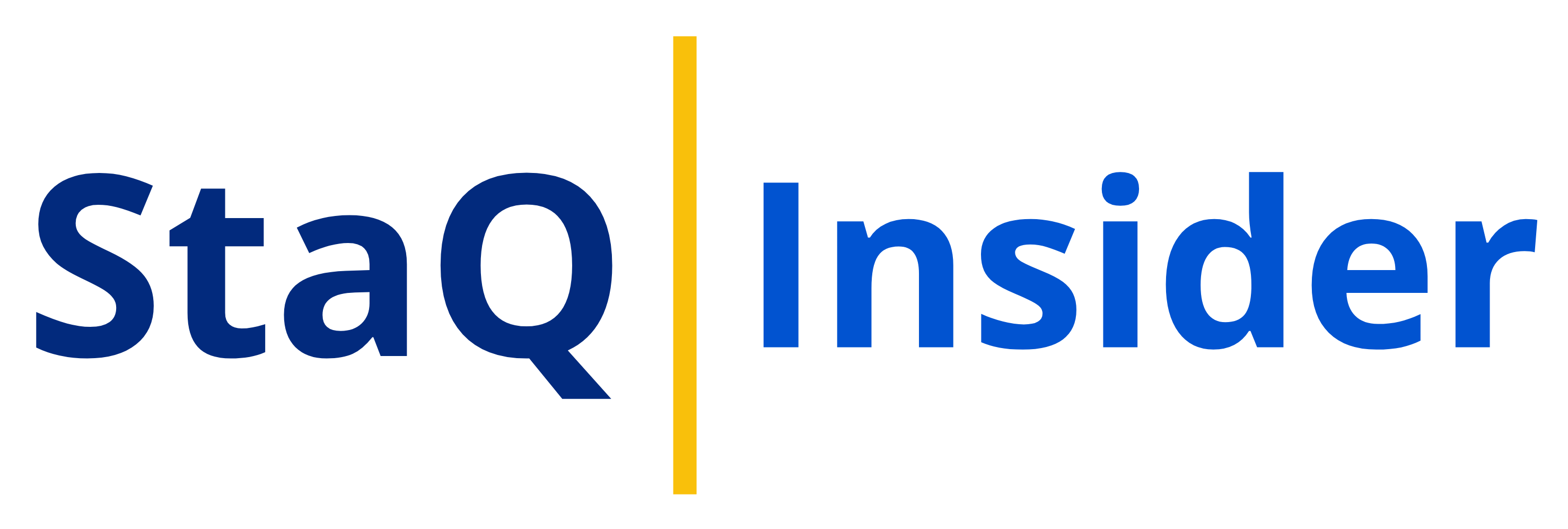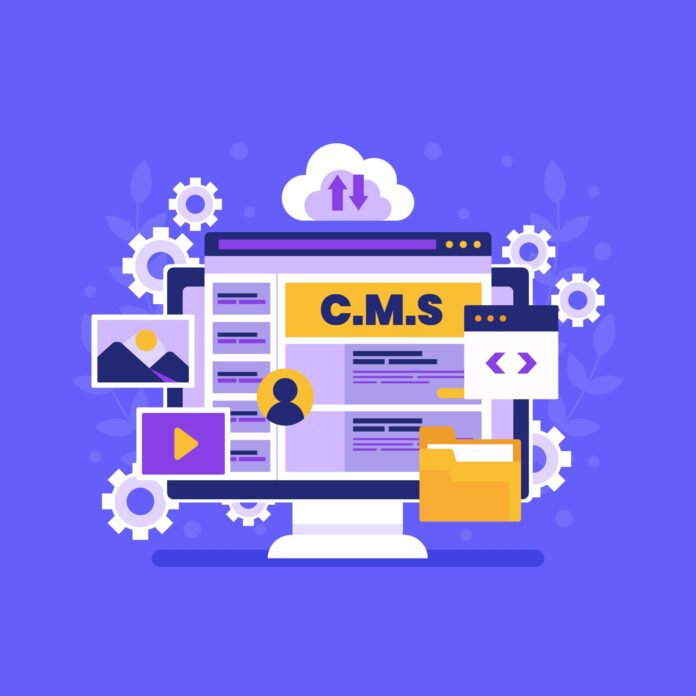Wearing multiple hats is par for the course when you’re a marketer, content creator, or website admin. One minute you’re strategizing campaigns, the next you’re churning out blog posts or updating product pages. Juggling all those responsibilities is tough enough to make anyone pull their hair out. But what if there was a tool that could make all of those tasks a breeze? Enter the content management system (CMS software).
But not all CMS platforms are created equal. Choosing the right one for your business needs is crucial to ensure a smooth, efficient workflow. So, let’s go over the important factors to consider when selecting CMS software that meets your business’s unique needs!
Understanding Content Management Systems (CMS)
Content Management Systems (CMS) are software applications designed to simplify the process of creating, managing, and publishing digital content on websites or other platforms. They provide a user-friendly interface that allows non-technical users to create, edit, organize, and publish content without the need for extensive coding knowledge.
The primary purpose of a CMS is to streamline the content management process, making it easier for individuals or teams to manage and update website content efficiently.
How Does a CMS Software Work?
A Content Management System (CMS) software consists of two main components: the Content Management Application (CMA) and the Content Delivery Application (CDA).
Content Management Application (CMA):
- CMA is the user-friendly interface that allows people to create, edit, and manage content on the website.
- It provides tools for adding pages, writing articles, uploading images, and managing user permissions.
- This is the part that non-technical users interact with to update the website.
Content Delivery Application (CDA):
- CDA is the behind-the-scenes engine that handles the storage, organization, and delivery of the content to visitors.
- It retrieves the content from the database and presents it on the website in the proper format for different devices (desktop, mobile, etc.).
- It also manages performance, security, and scalability to ensure the website runs smoothly and can handle high traffic.
Together, the CMA allows users to easily manage the content, while the CDA takes care of securely storing and efficiently delivering that content to website visitors. This separation of concerns makes it easy for non-technical users to update and maintain websites using a CMS.
Key Features of a Content Management System / CMS Software:
Here’s what you should expect from your CMS software:
-
-
Content Creation and Editing:
A CMS provides a user-friendly interface for creating, editing, and formatting content without the need for extensive technical knowledge or coding skills. It typically includes a WYSIWYG (What You See Is What You Get) editor that resembles a word processor.
-
Content Organization and Management:
A CMS allows users to organize content into categories, tags, or other taxonomies, making it easier to manage and find specific content. It also supports versioning, which enables tracking changes and reverting to previous versions if needed.
-
Multi-User Collaboration:
Most CMS solutions support multiple user roles and permissions, allowing for collaborative content creation and management. Different users can have varying levels of access and privileges, such as authors, editors, administrators, and contributors.
-
Content Publishing and Scheduling:
A CMS simplifies the process of publishing content to a website or web application. Users can schedule content to go live at a specific date and time, making it easier to plan and manage content publication.
-
SEO Optimization:
Most CMS platforms have built-in SEO tools that help your website rank higher in search engine results, increasing the chances of appearing on the first page of Google for relevant searches, making it easier for people to find your site.
-
Template and Theme Management:
CMSs typically provide a range of pre-designed templates or themes that allow users to control the overall look and feel of their website or web application. These templates can be customized to match branding and design requirements.
-
Media Management:
A CMS often includes a media library or asset management system for storing and organizing digital assets such as images, videos, documents, and other multimedia files. This feature streamlines the process of embedding media into content.
-
Version Control and Backups:
CMS allows you to see what changes were made to content over time and revert to previous versions if necessary. They also create backup copies to protect your data and ensure nothing gets lost.
-
Search and Navigation:
CMSs usually include search functionality, allowing users to easily find specific content within the system. They also support the creation of menus, breadcrumbs, and other navigation elements for an improved user experience on the website or web application.
-
Workflow and Approval Processes:
Some CMSs offer workflow and approval processes, which can be useful for organizations with strict content review and approval requirements before publication.
-
Extensions and Plugins:
Many CMSs support the installation of extensions, plugins, or add-ons that enhance functionality and provide additional features, such as e-commerce capabilities, social media integration, or advanced analytics.
-
Security and Access Control:
CMSs typically include security features like user authentication, access control, and regular software updates to protect against vulnerabilities and potential threats.
-
What can you Build with CMS Software?
With CMS software, you can build a wide range of websites and digital platforms efficiently without the need for extensive coding skills. Some examples of what you can build with CMS software include:
-
General Website:
A CMS can assist in the creation and maintenance of a professional website that promotes brands, products, and services, thereby increasing credibility and trust.
-
Blogs:
CMS platforms are ideal for creating and managing blogs, allowing users to publish articles, engage with readers, and optimize content for search engines.
-
E-commerce Websites:
CMS software facilitates the creation of online stores, allowing businesses to showcase products, manage inventory, process payments, and give consumers an easy way to shop.
-
Forums:
CMS platforms can be used to build online forums where users can engage in discussions, share information, and connect with like-minded individuals.
-
Online Magazines and News Portals:
CMSs are widely used to build and manage online magazines, news websites, and digital publications. They offer tools for writing and organising articles, managing authors, including multimedia content, and managing subscriptions or paywalls.
-
Event Websites and Calendars:
CMSs can help organisations create websites for promoting and managing events, conferences, and festivals. These platforms frequently have tools for listing events, selling tickets, handling registrations, and releasing agendas or schedules.
-
Private Course Content:
Educational institutions or businesses can use CMS software to create platforms for hosting private course content, providing a structured learning environment for students or employees.
-
Memberships:
CMS platforms can facilitate the creation of membership-based websites, offering exclusive content, services, or products to subscribed users.
-
Learning Management Systems (LMS):
Educational institutions and training organizations can use CMSs to create online learning platforms, manage course materials, track student progress, and facilitate online discussions.
-
Intranet and Extranet Portals:
CMS platforms can be used to create intranet and extranet portals, providing secure access to information and resources for employees, partners, and customers.
These examples demonstrate the versatility of CMS software in creating and managing various types of digital platforms, catering to different industries and purposes.

Different Types of Content Management Systems:
Content Management Systems (CMS) come in various flavors, each suited for specific needs. Here’s a breakdown of the most common types:
-
Web Content Management Systems (WCMS):
WCMS are designed to manage websites and web content. They provide a user-friendly interface to create, edit, and publish web pages without requiring extensive technical knowledge. Examples: WordPress, Joomla, Drupal, Wix, Squarespace.
-
Enterprise Content Management Systems (ECMS):
ECMS systems are designed for large organizations to manage and control essential information. They help businesses manage documents, records, and emails, ensuring enhanced adaptability, improved efficiency, and better collaboration. Examples: Microsoft SharePoint, IBM Content Management, OpenText Content Suite.
-
Component Content Management Systems (CCMS):
CCMS organizes content at the granular level, handling words, phrases, paragraphs, or images as components. This allows for maximum content reuse, single sourcing, traceability, and improved team collaboration. Examples: Adobe Experience Manager, Oracle Content Management.
-
Document Management Systems (DMS):
DMS is a type of CMS that focuses on managing and organizing electronic documents and digital content. They provide features like version control, check-in/check-out, and access control to ensure the safety and security of confidential content. Examples: Microsoft SharePoint, Laserfiche, Dropbox Business.
-
Headless CMS:
This type of CMS allows users to modify content and databases without integrating the front end. It enables faster iterations and the distribution of content across various platforms and channels, such as smartphones, smart devices, IoT devices, tablets, websites, and other platforms and channels. Examples: Contentful, Sanity, and ButterCMS.
-
Open-Source CMS:
Open-source CMS are free to download and use, requiring investment in technical support, add-ons, plugins, templates, software upgrades, and customization.
-
Proprietary CMS:
These are commercial CMS software developed and managed by organizations. They require acquiring a license, paying for updates and support, investing in technical training, and incurring extra costs for upgrades and personalization.
-
Cloud CMS:
Cloud-based CMS systems are available as a service or package, with full cloud options having limited customization and partial cloud options offering more flexibility.
Each type of CMS has its own unique features and benefits, and the choice depends on the specific needs and requirements of the business or organization.
How to Choose the Right CMS Software for Specific Business Needs!
There are numerous CMS softwares on the market, each with unique advantages and disadvantages. To select the best CMS for your website, you must consider several factors and make important decisions. Here are a few of the most important:
-
Integration with Existing Stack:
Evaluate how well the CMS integrates with your existing tech stack, including marketing automation platforms, CRM systems, analytics tools, and other essential software. A well-integrated CMS streamlines data synchronization, automates workflows, and provides a cohesive user experience across your digital ecosystem.
-
Customization Capabilities:
Look for a CMS that provides extensive customization options to align with your brand identity and specific requirements. Customization capabilities ensure your website stands out from the crowd and delivers a tailored user experience.
-
Content Management & SEO:
Assess content management features, such as content creation, editing, version control, and multi-user collaboration. Also, look for built-in SEO tools, such as customizable metadata, SEO-friendly URLs, XML sitemaps, and content analysis, to boost your search engine rankings.
-
User-Friendly Interface:
An easily navigable user interface empowers content creators and marketing teams to efficiently manage content. A simple and intuitive interface reduces the learning curve, enhances productivity, and encourages timely content updates.
-
Scalability:
Anticipate future growth and scalability needs by using a platform that can accommodate expansion and increased website traffic while supporting additional content and functionalities without sacrificing performance.
-
Analytics & Reporting:
A data-driven approach is essential for optimizing your online presence. Choosing a software that integrates with your analytics and reporting tools can provide useful insights into website user behavior, and content engagement.
-
Security:
Ensure the CMS handles security critically to protect your content, visitors’ privacy, and reputation from potential attacks.
-
Type of CMS:
Decide between open-source, proprietary, commercial, or SaaS CMS platforms based on your content management needs, budget, and technical expertise.
-
Scalability & Growth Potential:
Consider how well the CMS can support your website’s growth and change, handling high traffic volumes, large amounts of content, and multiple languages.
-
UX & Digital Experience:
Choose a CMS that can help you create and deliver engaging, personalized user experiences, ensuring your website visitors and customers have a positive interaction with your brand.
By carefully evaluating these considerations, you can make an informed decision and select the best CMS that aligns with your business objectives, enhances your online presence, and sets the stage for long-term success.
10 Popular CMS Software To Choose From:
-
WordPress.org (Free & Open-Source)
WordPress.org is the world’s most popular CMS software, powering around 43% of all websites on the internet. It’s known for its ease of use, wide range of themes and plugins, and large community.
-
Joomla (Free & Open-Source)
Joomla is a powerful and flexible CMS with a steeper learning curve than WordPress. It offers more features and customization options, making it a good choice for users who need greater control over their websites.
-
Drupal (Free & Open-Source)
Drupal is a powerful CMS often used for complex websites. It offers extensive control over functionality and design, though with a steeper learning curve compared to WordPress or Joomla.
-
Wix (Freemium)
Wix is a popular website builder offering a freemium plan. The free plan provides limited features, while paid plans offer more options and storage space. It’s ideal for users seeking to create websites quickly and easily without coding knowledge.
-
Squarespace (Freemium)
Squarespace is another popular website builder with a freemium model. It’s lauded for its beautiful templates and user-friendly interface, suitable for users who want to design a website without coding.
-
Shopify (Paid)
Shopify is a leading e-commerce platform enabling users to set up online stores easily. It offers features like product management, payment processing, and shipping. It’s a top choice for businesses looking to sell products online.
-
Magento (Free & Open-Source with Paid Options)
Magento is a robust e-commerce platform favored by large businesses. It provides extensive control over online stores, though it’s more complex than Shopify.
-
Contentful (Paid)
Contentful is a headless CMS allowing flexible content management and delivery to various devices or platforms. It’s scalable and suitable for users requiring adaptability in content management. A free plan is available for small businesses.
-
Ghost (Free & Open-Source)
Ghost is a CMS tailored for blogging, offering simplicity and speed. It’s an excellent choice for bloggers seeking a straightforward platform with essential blogging features.
-
HubSpot CMS Hub (Paid)
HubSpot CMS Hub is a part of HubSpot’s marketing platform, offering integration with other marketing tools. It’s ideal for businesses needing a CMS with features like content management, SEO, and social media marketing.




